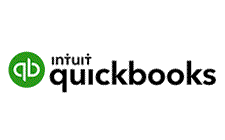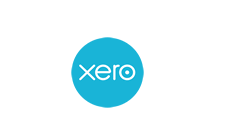Gifts of shares to children: direct or via a trust?
You want to give away some shares in your company to help provide an income for your children. Is it better to make a direct gift to them or should you transfer the shares to a trust with your children as beneficiaries?

Grandparent gifts to grandchild
There are several tax consequences resulting from gifts to your grandchildren depending on what’s given, its value and whether the gift is direct or via a trust. There’s no one size fits all answer to the question of what’s the most tax-efficient method.
A direct gift
A drawback of direct gifts to a grandchild is that their parents have control until the child ceases to be a minor. If that’s not an issue for you a straight gift can be tax efficient because:
- there’s no inheritance tax (IHT) to worry about as long as you don’t die within the following seven years
- any income, e.g. dividends, is taxed on the child. They can use their personal tax-free allowance to reduce or avoid the amount of income tax
- while a gift of shares in your company is treated for capital gains tax (CGT) purposes as if you sold them at the price you would get from a sale to a third party, you can dodge any CGT by making a holdover election.
A gift to a bare trust
A bare trust is similar to a direct gift but allows someone, e.g. you or a solicitor, to have legal ownership of the assets given away. The beneficiary becomes the legal owner when they cease to be a minor. For all tax purposes a bare trust is treated in the same way as a direct gift.
A gift to an IPP or discretionary trust
For tax purposes, most other trusts are either interest in possession (IIPs) or discretionary trusts. The former gives the beneficiary some right to income or capital from the trust assets, while the latter gives the trust the power (discretion) to decide if and when the beneficiary will get income or capital.
IHT. Both types of trust are so-called “relevant property” trusts. This means that the value of the assets you give to the trust is chargeable to IHT immediately and every ten years they remain in the trust, but only if the value of the gift when made and after each ten years exceeds the IHT nil rate band (NRB) (£325,000 for 2024/25). Even if the value exceeds the NRB if the company is a trading business IHT business property relief (BPR) can prevent an IHT liability.
CGT. The CGT position is the same as that for a direct gift, including the right to make a holdover election. When the time comes to transfer the shares from the trust to the grandchildren another holdover election can be made to prevent any CGT on the growth in value of the shares while they were in the trust.
Income tax. Both types of trust must pay tax on income from its assets at a special rate. When the income is passed to the beneficiary they can use their personal tax-free allowances to reduce the tax paid by the trust and obtain a refund. Two advantages that IIP and discretionary trusts have over direct gifts and bare trusts is that they allow some control over how much income is paid to the beneficiary, which allows for tax planning. Also, the beneficiary doesn’t automatically get control of the shares when they cease to be a minor.
Related Topics
-
MTD glitch risks confusion over 2025/26 payments on account
Some taxpayers testing Making Tax Digital for Income Tax (MTD IT) are seeing confusing and incomplete payment information because their data is split between HMRC’s digital and self assessment systems. What’s happened?
-
Directors’ fees - can you escape PAYE?
You’ve been asked to join the board of a company in a purely advisory role. For tax and NI efficiency you want your fees to be paid to your own company. Does this arrangement fall foul of HMRC’s off-payroll rules?
-
MONTHLY FOCUS: AUTO-ENROLMENT - EMPLOYERS' RESPONSIBILITIES
What are an employer's responsibilities with regard to pension schemes and their employees?






 This website uses both its own and third-party cookies to analyze our services and navigation on our website in order to improve its contents (analytical purposes: measure visits and sources of web traffic). The legal basis is the consent of the user, except in the case of basic cookies, which are essential to navigate this website.
This website uses both its own and third-party cookies to analyze our services and navigation on our website in order to improve its contents (analytical purposes: measure visits and sources of web traffic). The legal basis is the consent of the user, except in the case of basic cookies, which are essential to navigate this website.